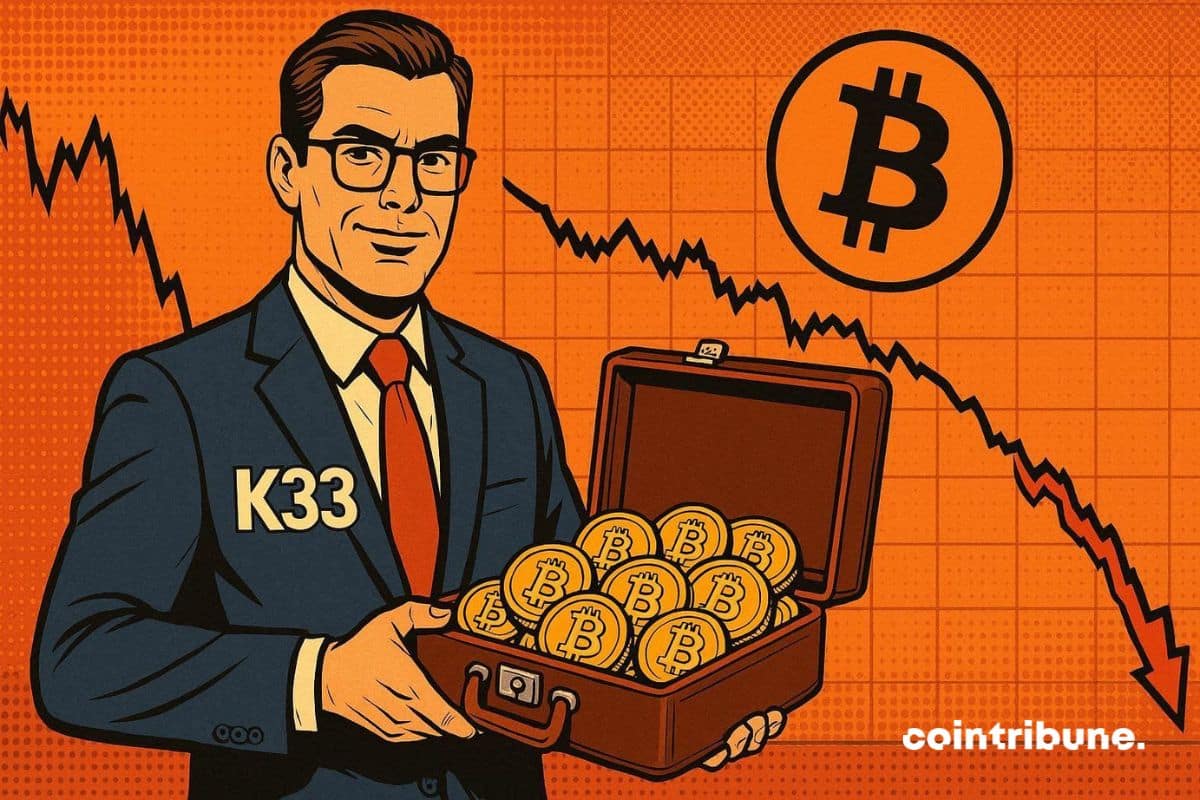JPMorgan offers investors chance to win big if Bitcoin's price drops next year, but then rockets in 2028
Quick Take The structured note gives investors a chance at big returns if BlackRock’s Bitcoin ETF is down in a year, but then up by 2028, with no cap. The vehicle is one more example of JPMorgan and Wall Street embracing crypto-based financial instruments.

JPMorgan Chase is proposing a derivative-style investment that will allow investors to score unlimited returns if the price of Bitcoin declines over the next year, but then soars in 2028.
The structured note essentially allows investors to wager on the future price of Bitcoin using BlackRock's popular BTC exchange-traded fund (ticker IBIT) as the vehicle, according to a prospectus filed with the U.S. Securities and Exchange Commission on Monday.
BlackRock's iShares Bitcoin Trust ETF, with nearly $70 billion in assets under management, the largest fund of its kind, has gone a long way in convincing traditional investors of the potential for digital assets-based investments. The fund allows investors to track the spot price of Bitcoin without having to own the cryptocurrency.
JPMorgan's new proposed notes are one more example of a major Wall Street firm experimenting with creative ways to provide investment opportunities linked to digital assets that don't require the investors, or the issuer in this case, to actually hold any cryptocurrency. It's also one more sign that JPMorgan's views on Bitcoin continue to evolve.
JPMorgan CEO Jamie Dimon once dismissed Bitcoin as a money-laundering tool "worse than tulip bulbs."
How the investment works
FINRA characterizes "structured notes" as instruments that combine a “traditional security, like a bond, with a derivative component” with the issuer of the note promising “to pay a return based on a formula that incorporates the performance of one or more reference assets."
JPMorgan's proposed instrument will set a specific price level for BlackRock's IBIT fund next month. In approximately a year, if IBIT is trading at a price equal to or greater than the set price, the notes will be automatically called, and investors will receive a guaranteed minimum return of 16%.
If, however, IBIT's price is lower than the set price a year from now, the notes will not be called, and participating investors will ride the investment out until 2028. Should IBIT pass JPMorgan's next set price by the end of 2028, investors will earn 1.5x on their investment with no cap — meaning if Bitcoin shoots up by 2028, investors stand to earn a hefty return.
As an added protection and incentive, if IBIT is down in 2028, but by no more than 30%, investors will recoup their entire initial investment.
Basically, the main reasons investors would choose this note over simply investing in IBIT: With JPMorgan's instrument, investors get a chance at a 1.5x upside, a fixed return if IBIT is flat in a year, and, long-term, downside protection up to 30%. If IBIT is down more than 30% in 2028, however, investors lose the equivalent of IBIT's depreciation.
In the prospectus, JPMorgan is clear about the risky nature of the investment, stipulating that "investors should be willing to forgo interest payments and be willing to lose a significant portion or all of their principal amount at maturity." The notes are also not bank deposits, nor are they insured by the Federal Deposit Insurance Corporation, according to JPMorgan.
Morgan Stanley offers a similar product, also linked to BlackRock's Bitcoin ETF, which last month brought in $104 million in sales, according to Bloomberg .
"The product offers clients exposure to [Bitcon's] swings — but within strict boundaries," the report said. "The two-year notes, known as dual directional autocallable trigger plus, promises enhanced payouts if the ETF stays flat or rises at maturity, and modest gains if it falls less than 25%. If the ETF drops far enough, investors take losses in full, with no cushion."
In a broader story about this brand of investments, Bloomberg said the recent interest in these new layered investments "ends years of stagnation in the U.S. structured product industry following the collapse of Lehman Brothers, a major issuer whose demise wiped out billions of dollars worth of notes."
Disclaimer: The content of this article solely reflects the author's opinion and does not represent the platform in any capacity. This article is not intended to serve as a reference for making investment decisions.
You may also like
JPMorgan bets on high gains with its new Bitcoin product

Bitcoin: A Relative Buying Opportunity Despite the Panic, According to k33

The "Bankruptcy" of Metcalfe's Law: Why Are Cryptocurrencies Overvalued?
Currently, the pricing of crypto assets is largely based on network effects that have yet to materialize, with valuations clearly outpacing actual usage, retention, and fee capture capabilities.

Need Funding, Need Users, Need Retention: A Growth Guide for Crypto Projects in 2026
When content becomes saturated, incentives become more expensive, and channels become fragmented, where lies the key to growth?

